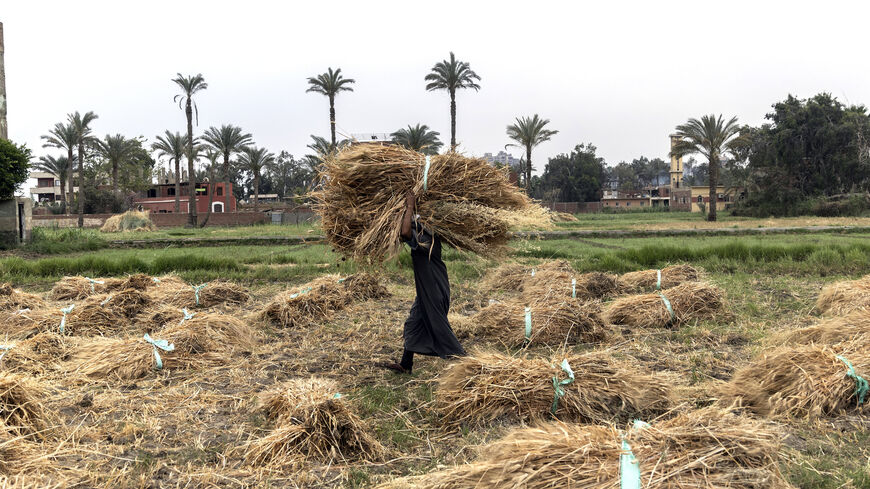
Russia’s return to the agreement on grain exports from Ukraine will help North African countries secure their wheat needs, as they heavily rely on the two warring countries for their imports.
Russia’s Defense Ministry announced Nov. 2 that Moscow was rejoining the deal to allow the export of grains from Ukraine via the Black Sea. Russia had suspended its participation in the agreement in October after it accused Kyiv of carrying out drone attacks on its naval fleet stationed in the Crimean Peninsula.
The Russian return to the agreement — which was struck in July and allowed the export of some 10 million tons of Ukrainian grain — constitutes a major breakthrough in the wheat supply to Africa, especially North African countries, including Egypt, Tunisia, Algeria, Morocco, Sudan and others, which import most of their wheat needs from Russia and Ukraine, the world’s largest exporters of wheat.
Russia’s agreement to rejoin the deal came after Moscow obtained written guarantees from Kyiv that the grain export corridor would not be used for military purposes again.
According to a statement by the Kremlin, Russian President Vladimir Putin had told his Turkish counterpart Recep Tayyib Erdogan in a phone call Nov. 1 that he had asked the Defense Ministry to resume its participation in the grain export agreement, and stressed that Moscow reserves the right to withdraw from this agreement if Ukraine did not abide by the guarantees.
Putin also affirmed Russia’s willingness to provide African countries with grain and fertilizer for free, according to the Kremlin.
Rashad Abdo, economic expert and head of the Egyptian Forum for Economic and Strategic Studies, praised the Russian decision to rejoin the deal. He told Al-Monitor that this decision, along with Russia’s preparations to export wheat to African countries for free, consist of a major recovery in the wheat supply to North African countries that import the majority of their wheat needs from Russia and Ukraine.
Abdo noted that the resumption of Ukrainian grain exports will help make grains available on world markets at average prices.
He added, “In general, commodity prices are determined by supply and demand. Therefore, the more wheat available in the global market, the lower its price will be, and vice versa. Hence, the [resumption] of Russian and Ukrainian wheat supplies will help North African countries secure their food basket, especially since wheat is a main food commodity for their people.”
Ukraine plays a pivotal role in the global food basket, as it is the largest exporter of sunflower oil, and supplies the world with approximately 45 million tons of grain every year. It is also among the largest global exporters of wheat, barley and corn. Thus any obstruction to Ukraine’s grain exports will lead to a major food crisis, especially in North African countries that heavily depend on Kyiv and Moscow to obtain wheat.
Reda Mohamed Ali, head of the National Wheat Campaign at the Egyptian Ministry of Agriculture and Land Reclamation, told Al-Monitor, “After the Russian-Ukrainian war, Egyptian state agencies have worked to increase Egypt’s productivity of strategic commodities, especially wheat. We, at the ministry, aim to plant 4 million acres of wheat this year, which means that wheat production will hit 12 million tons.”
He said, “Based on Egypt’s Vision 2030 [for sustainable development] work is underway to increase the cultivated area of wheat in order to produce around 70% of Egypt’s wheat consumption.”
According to Ali, Egypt consumes 20 million tons of wheat annually, which is subject to increase as a result of population growth in the country.
